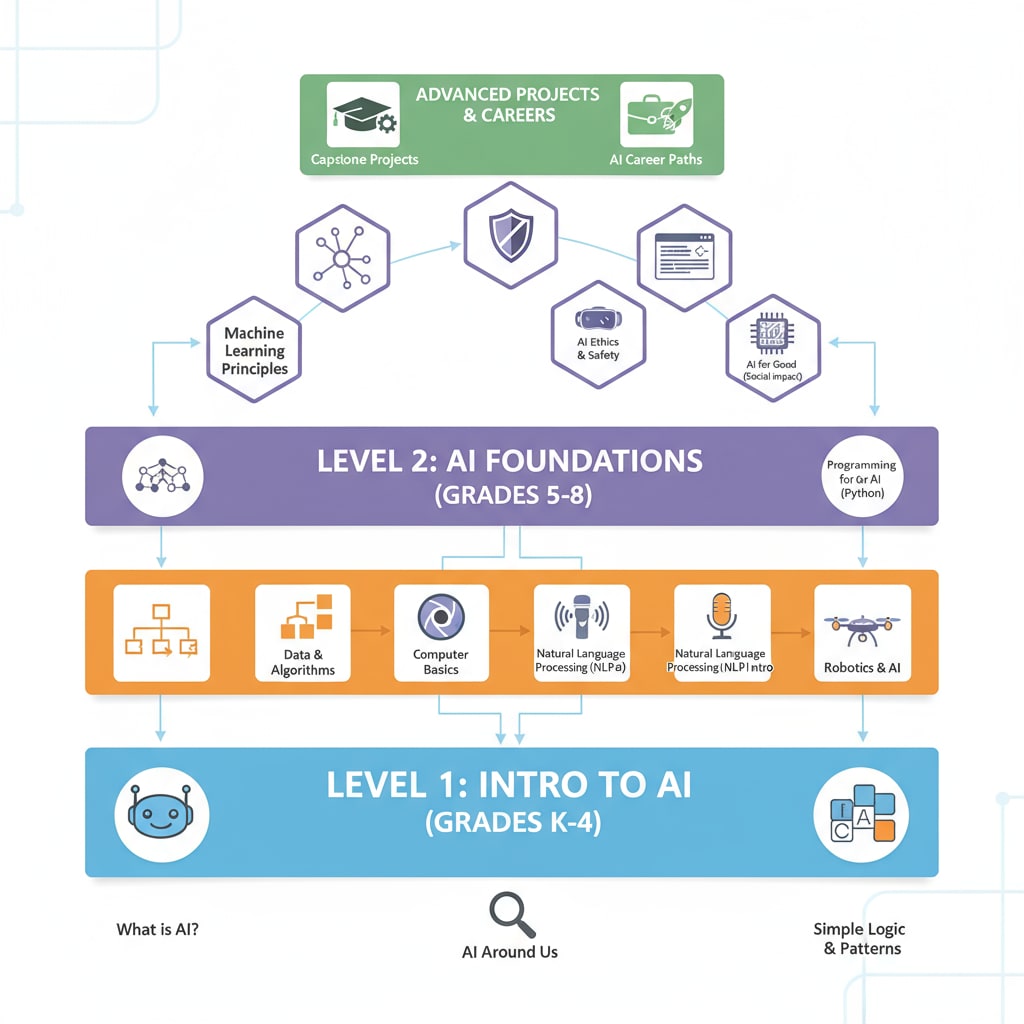AI courses, prompt writing, and educational development are at the forefront of discussions as we envision the future of education. The rapid evolution of artificial intelligence (AI) has transformed various aspects of our lives, making AI literacy an essential skill for the next generation. In the context of K12 education, the inclusion of AI courses is not just a luxury but a necessity.

The Necessity of AI Courses in K12 Education
In today’s digital age, AI is everywhere, from the smartphones in our pockets to the complex algorithms powering financial markets. For K12 students, being exposed to AI early on can help them understand the technological forces shaping their world. According to Britannica’s entry on artificial intelligence, AI has the potential to revolutionize industries, and by learning about it in school, students can be better prepared for future careers. For example, understanding how AI algorithms work can inspire students to pursue fields like data science, software engineering, or even AI ethics.
Potential Course Architecture for AI in K12
The AI curriculum for K12 could be structured in a progressive manner. At the elementary level, it could start with basic introductions to AI concepts, such as showing how simple AI systems are used in everyday devices. As students progress to middle school, more in-depth topics like machine learning basics and data collection could be introduced. High school students could then engage with advanced concepts like neural networks and natural language processing. Wikipedia’s page on artificial intelligence education provides insights into different models of AI education curricula. This structured approach would ensure that students build a solid foundation in AI knowledge.

Another crucial aspect of AI education in K12 is prompt writing. Teaching students how to write effective prompts for AI tools can enhance their creativity and problem-solving skills. By learning to communicate clearly with AI systems, students can leverage these tools to their advantage, whether it’s for research, creative writing, or solving complex problems.
In conclusion, AI literacy is set to be a cornerstone of future K12 education. The integration of AI courses, along with the development of prompt writing skills, will play a significant role in shaping students’ educational development and preparing them for a future dominated by artificial intelligence. As educators and policymakers, it’s imperative to recognize the importance of these elements and work towards implementing comprehensive AI education in K12 institutions.
Readability guidance: This article uses short paragraphs and lists to summarize key points. Each H2 section provides relevant information in a clear manner. The proportion of passive voice and long sentences is controlled, and transition words are used throughout to enhance readability.


